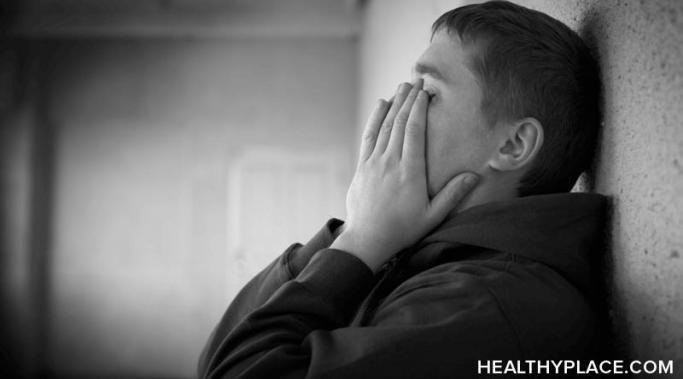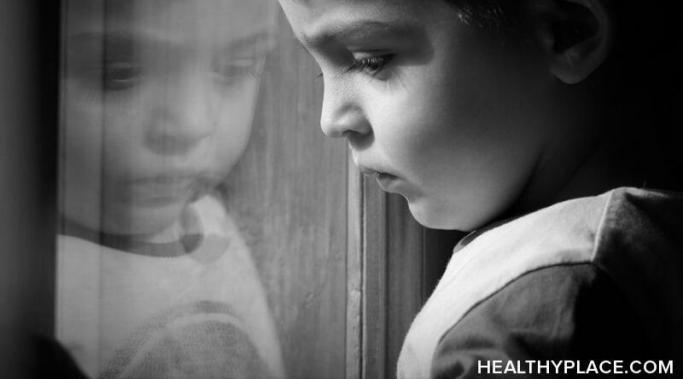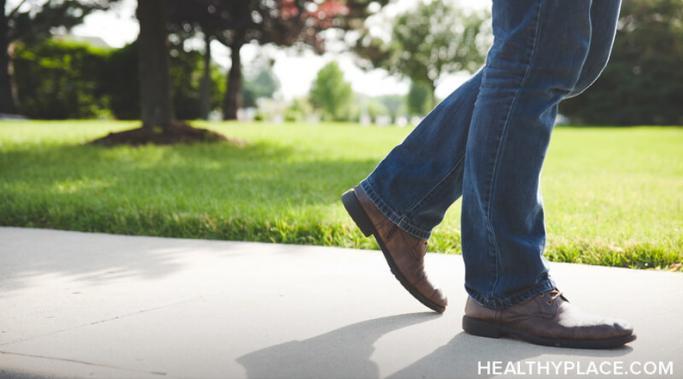My psychopharmacologist and I made a medication change, and now I’ve only heard schizoaffective voices once in over a month. Here’s what it’s like to bring this schizoaffective disorder symptom under control once again.
Schizophrenia Symptoms
It was the summer of 2006. I had just completed my master’s degree in photography from Columbia College Chicago. My schizoaffective mania was taking over—yet, I felt very suicidal. It all came to a head on a trip to Door County with my parents and my younger brother. (Note: This post contains a trigger warning.)
It's 3:00 a.m. and I can't sleep. I'm sitting in the commons area of an eerily quiet psychiatric hospitalization unit while I recover from a relatively severe psychotic break. I wasn't going to blog this week because, well, the obvious. On top of that, all I have is pen and paper, no Internet access. But my wife still managed to post this week despite taking me to the hospital and picking up the slack in my absence. It is good to emulate one's heroes and I can think of no greater hero than my wife. I just wish I were a little more like her. But I have to remember that psychiatric hospitalization does not denote weakness.
As I’ve confided before, one of the most debilitating symptoms of my schizoaffective disorder is that I hear voices. I’ve been hearing them a lot more often lately. I’ve been hearing them so often that I called my psychopharmacologist to raise the dosage of my antipsychotic medication. That helped a little bit, but I’m still hearing them more often than I’d like to. Here’s how I’m dealing with these schizoaffective voices.
I avoided living in the moment for a very long time. Years of my life flashed before my eyes, and I barely took notice. I was so intent on achievement that I never stopped to appreciate what it was to simply be alive. For me, living with schizophrenia means frequent imprisonment in a world that constantly seems to be spiraling out of control. Now, however, I’m learning to combat this feeling: I’m learning to live in the moment.
Negative symptoms of schizophrenia offer a harsh reality for me. I noticed a change in my ability to feel emotion shortly after I began exhibiting symptoms of schizophrenia but long before formal diagnosis. I was well acquainted with feelings of depression and anxiety related to surviving child sexual abuse, but this was different. I lost interest in activities I formerly enjoyed, I no longer felt like associating with others and I felt a tremendous sense of indifference towards life in general. I was experiencing negative symptoms of schizophrenia.
I survived sexual abuse as a child, but did it contribute to my later diagnosis of schizophrenia? Research suggests a possible link between psychotic disorders and childhood trauma, but the exact nature of this link remains unclear. The significant impact of child sex abuse on my life, however, is indisputable.
I was not surprised by my schizophrenia diagnosis. I realized that I was likely suffering from psychosis six weeks prior to my schizophrenia diagnosis when the symptoms of a patient alerted me to the nature of my own illness. I engaged in a bit of quick research on the subject and inadvertently ensnared myself in a psychotic delusion: I could not tell anyone that I was suffering from psychosis. In my mind, my employer and the government were closely monitoring my Internet history and would determine that I was a fraud. That was the first time I felt like a fraud. It wouldn't be the last.
The intensity of my anxiety has me on a roller coaster. After a flare-up of my schizoaffective anxiety in September and October, my symptoms became really manageable again in November. I felt great. But then, when December came around, I started reeling in anxiety again. I’m not sure why I felt so good in November, or why my schizoaffective anxiety flared up again just in time for the holidays. But I have some ideas about why the intensity of my anxiety keeps changing.
My early signs of schizoaffective disorder showed up when I was as young as 11. But I wasn't diagnosed with schizophrenia until I was 19, and then re-diagnosed with schizoaffective disorder, bipolar type, four years later. However, there were definite early signs of schizoaffective disorder with bipolar symptoms during my preteen years.









